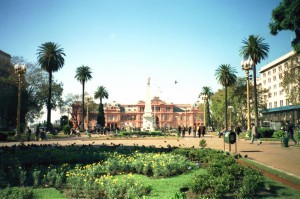So you are thinking about going abroad, but you haven’t figured out the best way to support yourself while adventuring the world. Getting certified in TEFL will open doors to visit, live and experience countries all over the world. You will earn a livable wage and be immersed into cultures in a way that you never could have imagined. If you love travel and adventure, getting your TEFL will allow you visit just about every continent and is an excellent investment in your travelling future.
The first thing you should know is what all this acronym business is about:
TEFL: Teaching English as a Foreign Language
ESL: English as a Second Language
EFL: English as a Foreign Language
TESOL: Teaching English to the Speakers of Other Languages
So, basically you can see that they all pretty much mean the same thing. TEFL is the most common acronym for teaching English abroad.
With a TEFL certificate you will be able to teach in numerous countries around the world, including Thailand, Korea, South America, and Spain. The requirements vary from country to country, but in general you will be considered a good candidate if you possess a TEFL certificate, are a university graduate, are a native English speaker (duh!) and either have lived abroad or have a desire to experience another culture. Some countries have a fairly relaxed system for foreigners entering and working, however others may strictly enforce work visa vs. tourist visa regulations.
Some countries, especially in Asia, will sponsor your visa, pay for your plane ticket, give you housing upon arrival AND pay you a decent living wage. Japan was once the hot spot for teaching English, however now the market is flooded. Korea, however, still actively seeks hundreds, if not thousands, of new teachers every year.
Here in Argentina you can enter on a tourist visa good for three months (this is for citizens of most countries, check https://www.argentina.gov.ar/argentina/portal/paginas.dhtml?pagina=1245 for detailed info on your country) which can be renewed either by going to Uruguay or any neighboring country, or at immigrations. Unless you work for a big, possibly corporate, language institute, you probably won’t be able to get sponsored by your employer for a work visa. There are some English institutes that do sponsor visas, however, you may have to pay for the visa (about $600) and they tend to pay about half the amount that most institutes pay (which is half the amount that you would make if you worked for yourself). Although you aren’t going to get rich teaching English in Argentina, unless you are incredibly innovative and driven, and planning to stay awhile, you will find that you make plenty of plata to support yourself.
is for citizens of most countries, check https://www.argentina.gov.ar/argentina/portal/paginas.dhtml?pagina=1245 for detailed info on your country) which can be renewed either by going to Uruguay or any neighboring country, or at immigrations. Unless you work for a big, possibly corporate, language institute, you probably won’t be able to get sponsored by your employer for a work visa. There are some English institutes that do sponsor visas, however, you may have to pay for the visa (about $600) and they tend to pay about half the amount that most institutes pay (which is half the amount that you would make if you worked for yourself). Although you aren’t going to get rich teaching English in Argentina, unless you are incredibly innovative and driven, and planning to stay awhile, you will find that you make plenty of plata to support yourself.
Frequently Asked Questions (Answers specific to Argentina)
Where can I do the TEFL?
Buenos Aires! It is possible to do the TEFL in several locations, in your home country, abroad, even online; however, doing your TEFL in Buenos Aires is certainly the best option if you plan on teaching in BA. During your course you will have a chance to get to know the city, begin inquiring about jobs and make connections. With Mente you can choose to live in a shared apartment where you are sure to meet people your own age also living in Buenos Aires or private accomodation.
Do I need to speak Spanish?
In your classes it is not necessary to speak Spanish, however knowing the basics will come in handy from time to time. On the other hand, being able to communicate in Spanish outside the classroom will make for a much more enriching cultural experience in Buenos Aires. You will be able to meet more people, have more involved conversations and simply manage the city a little better. So why not sign up for one of Mente Argentina’s intensive Spanish immersion courses to bruch up on that Spanish you learned waaay back in high school?
There is a surprising number of English speakers in the city, whether it’s their first language or not, you will almost always be able to find someone to talk to or get help from if you don’t speak very much Spanish. That being said, you are going to another country and it can be viewed as ignorant if you expect to only speak English. Plus speaking another language is fun!
How long?
As long as you want! Most schools ask for a 6 month commitment, but the reality is that if they don’t provide a work visa for you, you are not obligated legally. However, being the honest and ethic person that you are, you will give at least one month’s notice of leave to your potential employer.
How old?
You must be at least 18 years old.
What if English is NOT my native language?
It will depend on the circumstances. If it is not your native language, but you have lived extensively in an English speaking country and have a fairly neutral accent you may be able to find work. Because English isn’t your native language, you may be required to have additional qualifications, for example a Bachelor’s or Master’s degree in English or Teaching English as a Second Language. Check with individual institutes for their specific requirements.
Can I bring my partner/children?
A partner, yes. Children, probably not. If you have a partner who is also a native English speaker, s/he will probably be able to find work as well. However, the salary here is not going to be enough to support children. I know plenty of couples who come down to work and it will actually make your cost of living cheaper, i.e. sharing accommodation and food, but I would not recommend trying to raise children here on teacher wages.
Can I find a job before I leave?
It’s possible, however most companies don’t hire unless you are actually physically here for an interview. Check out craigslist to get an idea of what employers are looking for. You can always email them to get a little more information and send in your resume, but honestly you probably won’t find work until you arrive. But don’t worry, once you’re here you will have more work than you can handle! Especially if you go through Mente Argentina’s TEFL program because the school will assist you in finding local work with a good salary.
When do jobs start?
Argentina is in the Southern Hemisphere which means that their school year starts in March. Even people who are not in school or University will still follow this schedule, and so most institutes don’t hire between December and March either. The best time to start looking for a job is the end of February or beginning of March, then again in June and July when the second semester begins.
Climate?
Buenos Aires is beautiful in the spring (late September to early December) and the fall (late March to early June) and has relatively mild winters with temperatures never falling below freezing and average rainfall. The summers, on the other hand, are insoportable. In other words, unbearable. Hot and humid days followed by hot and humid sleepless nights. During the month of January the whole city seems to empty as most porteños take their vacations and head to the beach! Although it might be a tough time weatherwise, it actually might be the perfect time to do Mente Argentina’s month-long TEFL certification course because then in February when everyone is coming back from vacation and getting back into their routines you will be certified and ready to teach! Not to mention you will have public transportation down and be able to navigate yourself around the city as the people start flooding back in.
humid sleepless nights. During the month of January the whole city seems to empty as most porteños take their vacations and head to the beach! Although it might be a tough time weatherwise, it actually might be the perfect time to do Mente Argentina’s month-long TEFL certification course because then in February when everyone is coming back from vacation and getting back into their routines you will be certified and ready to teach! Not to mention you will have public transportation down and be able to navigate yourself around the city as the people start flooding back in.
Work visa?
In Argentina you probably won’t get a work visa from the company that you work for. So keep your tourist visa current by visiting Uruguay, Brazil, Chile or wherever your heart desires and you will be good to stay in Argentina.
Working conditions?
Working conditions will vary depending on several factors. Most likely you will not be working set hours all at the same company (although some people do) so working conditions can be anything from a comfortable classroom in Palermo to a coffee shop or even at the individual’s office. The hours can be super sporadic as well, so flexibility is key. Here in Buenos Aires you might start out with a couple of classes a week averaging around 10 hours, then you will pick up other hours and after about 2 months likely have more work than you care to take on. Little by little your schedule will come together, then fall apart the next week. While there isn’t a lot of stability, there is almost always enough money.
How much will I make?
On average institutes pay their teachers between 30 and 40 pesos per hour. That is about $8-10 USD which is a livable wage here, providing you are working enough hours. In the beginning it will probably be difficult to have a schedule busy enough to support yourself, but after a couple of months you will likely be making enough to support yourself and enjoy your free time. The wages earned teaching English, although they may be low by your standards, are actually quite good for a young adult in Argentina because the cost of living is less than the US or Europe. Don’t get me wrong, this city is not cheap, but if you can budget your money (i.e. not eating out every meal, only going out on weekends, doing free activities like going to the park) you will surly make ends meet.
Housing?
During your first month here with Mente’s TEFL program you can elect to stay in a shared apartment, a homestay or a dorm. After that craigslist will be your best friend while you are looking for a more permanent housing situation. There are plenty of shared apartments in the city and depending on the neighborhood you can expect to pay between $300-600USD for a room in a shared apartment. There are several real estate offices where you can find private studios or one bedroom furnished apartments in the city, but expect to pay a minimum of $800USD per month. And unless you’ve landed an AMAZING teaching job, your salary will unlikely support rent this expensive.
Health insurance?
Argentina has socialized healthcare, so going to the hospital in an emergency or for anything really is possible. However, going to a public hospital means an insane wait followed by less than state of the art facilities. Many people, Argentineans included, opt to pay for health insurance outside of the public realm. Private healthcare is excellent, doctors even do house calls! Plan on spending about $100 a month.
Transportation and Travel?
Transportation within the city is incredibly affordable. A ride on the subway will cost you $1.10 peso (about 25 cents) and even leaving the city to the surrounding suburbs is also very cheap. Taxi’s don’t cost too much either, with an average price of abou t $25 pesos or $6USD obviously depending on how far you are going. However, traveling extended distances like to Iguazu or Mendoza will cost quite a bit (check out plataforma10.com to get an idea). A bus to Iguazu is about $100USD each way.
t $25 pesos or $6USD obviously depending on how far you are going. However, traveling extended distances like to Iguazu or Mendoza will cost quite a bit (check out plataforma10.com to get an idea). A bus to Iguazu is about $100USD each way.
Who will my students be?
Classes vary and depending on what type of class you prefer to give you will probably be able find what you are looking for. It seems that everyone wants to learn English in Buenos Aires, children, professionals, students, stay at home moms, just about any demographic you can think of will probably have a demand. You might give group classes at a business or private lessons to the guy who owns a local arts and crafts shop down the street. It’s nice because there is always work and it is always a little different.
What if I hate it?
You won’t! Well, I guess I can’t speak for everyone, but this is going to be the experience of a lifetime and if you have an open mind and some motivation you are sure to enjoy your time here! That being said, in the unlikely event that you don’t like the work or can’t find your niche here in Buenos Aires, you aren’t obligated to stay. You may want to try out another city or country while you are here in South America and you will be able to take your TEFL with you! All in all, you don’t have anything to lose!
Teaching abroad is the best way to experience a country. You will make great friends, find day to day life to be challenging, but always very exciting and get to see the culture through the lives and experiences of your students.
So if your New Year’s Resolution has anything to do with travel, culture or language, you better sign up for the TEFL now! Spending a year abroad will be one of the most exciting and memorable years of your life, so don’t wait any longer!

